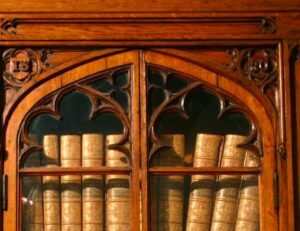Old literature, with its rich tapestry of stories, themes, and characters, serves as a timeless testament to the human experience. From ancient epics to medieval manuscripts and Renaissance masterpieces, these literary classics continue to captivate readers and scholars alike with their enduring relevance and profound insights into the human condition. This comprehensive exploration embarks on a journey through the realms of old literature, unraveling its significance, influence, and enduring legacy.

Unveiling the Treasure Trove of Old Literature
Old literature encompasses a vast and diverse array of works spanning centuries and continents. From the epic poems of Homer and Virgil to the plays of Shakespeare and the novels of Jane Austen, these timeless classics form the foundation of the literary canon and continue to shape our understanding of the world.
Ancient Epics: The Foundation of Storytelling
Ancient epics, such as “The Iliad” and “The Odyssey” by Homer, and “The Aeneid” by Virgil, lay the groundwork for storytelling and narrative structure. These epic poems, with their larger-than-life heroes, epic quests, and timeless themes of honor, courage, and destiny, serve as enduring symbols of human aspiration and resilience.
Medieval Manuscripts: Preserving Knowledge and Culture
Medieval manuscripts, painstakingly hand-crafted by monks and scribes, offer a glimpse into the intellectual and cultural landscape of the Middle Ages. Works such as “The Canterbury Tales” by Geoffrey Chaucer and “The Divine Comedy” by Dante Alighieri provide insights into medieval society, morality, and spirituality, while showcasing the artistry and craftsmanship of the period.
Renaissance Masterpieces: A Rebirth of Creativity and Expression
The Renaissance marked a period of renewed creativity and expression, ushering in a golden age of literature, art, and scholarship. Masterpieces such as “Hamlet” and “Romeo and Juliet” by William Shakespeare, and “Don Quixote” by Miguel de Cervantes, exemplify the spirit of the Renaissance, blending innovation, humanism, and artistic genius.
Exploring the Significance of Old Literature
Old literature holds profound significance for readers and scholars alike, offering insights into the past while illuminating universal truths about the human condition.
Cultural Heritage and Identity
Old literature serves as a repository of cultural heritage and identity, preserving the stories, myths, and traditions of civilizations past. These literary works provide a window into the values, beliefs, and aspirations of ancient and medieval societies, enriching our understanding of human history and culture.
Universal Themes and Truths
Despite the passage of time, the themes and truths explored in old literature remain as relevant and resonant today as they were centuries ago. Love, loss, betrayal, redemption, and the quest for meaning are enduring motifs that transcend temporal and cultural boundaries, speaking to the universal aspects of the human experience.
Literary Influence and Inspiration
Old literature continues to exert a profound influence on contemporary writers, artists, and thinkers. This, inspiring new works and interpretations across diverse media and genres. The themes, characters, and narratives of classics such as “Pride and Prejudice” by Jane Austen and “Moby-Dick” by Herman Melville resonate with readers of all ages, sparking dialogue and creativity across generations.
Embracing the Enduring Legacy of Old Literature
The enduring legacy of old literature is a testament to its enduring power to educate, inspire, and provoke thought. As custodians of this rich literary heritage, we have a responsibility to preserve, celebrate, and engage with these timeless classics for generations to come.
Preserving Literary Heritage
Preserving old literature is essential for safeguarding our cultural heritage and ensuring that future generations have access to the wisdom, beauty, and diversity of the literary canon. Digital archives, scholarly research, and educational initiatives play a vital role in preserving and disseminating old literature for posterity.
Celebrating Literary Diversity
Old literature encompasses a diverse range of voices, perspectives, and traditions, reflecting the richness and complexity of the human experience. By celebrating the diversity of old literature, we honor the contributions of writers. Those from different cultures, backgrounds, and time periods. Thus fostering inclusivity and understanding in the literary community.
Engaging with Old Literature
Engaging with old literature is a rewarding and enriching experience. One that offers insights into the past while sparking reflection and introspection in the present. Whether through reading, discussion, or scholarly inquiry. Exploring old literature allows us to connect with the timeless themes and enduring truths that shape our lives and our world.
Conclusion: A Timeless Legacy of Inspiration and Insight
Old literature stands as a testament to the enduring power of the written word to transcend time and space. Serving to illuminate the human experience with its timeless wisdom, beauty, and truth. From ancient epics to Renaissance masterpieces. These literary classics continue to inspire, provoke, and enrich our lives. Thus forging connections across generations and cultures that endure long into the future. As we embark on this journey through the realms of old literature, let us celebrate its legacy. Let us embrace the transformative power of storytelling to shape our world and our understanding of ourselves.

